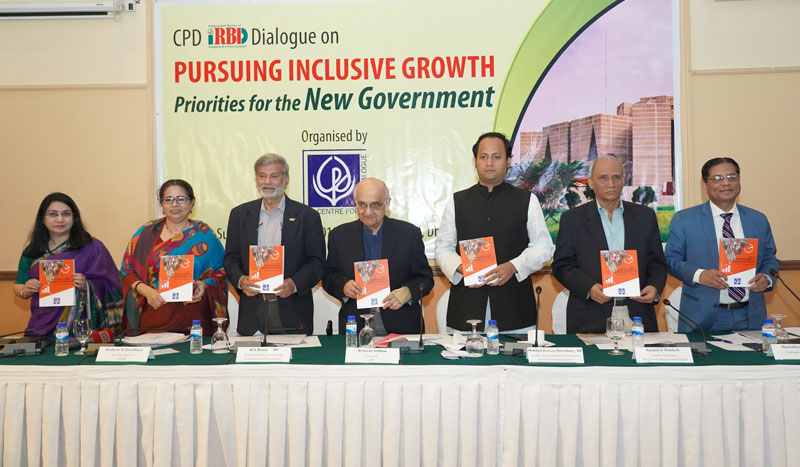
The quality of government institutions needs to be improved for pursuing social development to achieve inclusive growth. Bangladesh’s impressive economic growth could not generate adequate employment and reduce inequality. The newly elected government has to work towards ensuring the quality of growth through improving the quality of government institutions. The government has to invest for creating more jobs, providing better quality education and healthcare, and expanding social protection for those who are ‘left behind’ to make growth inclusive.
These views were shared at a CPD dialogue, “Pursuing Inclusive Growth: Priorities for the New Government” on 10 February 2019. At the dialogue, the keynote presentation titled, “Pursuing Social Development for Achieving Inclusive Growth: Issues and Priorities” was made by Dr Fahmida Khatun, Executive Director, CPD. Professor Rehman Sobhan, Chairman, CPD, chaired the dialogue and Professor Mustafizur Rahman, Distinguished Fellow, CPD, moderated the session.
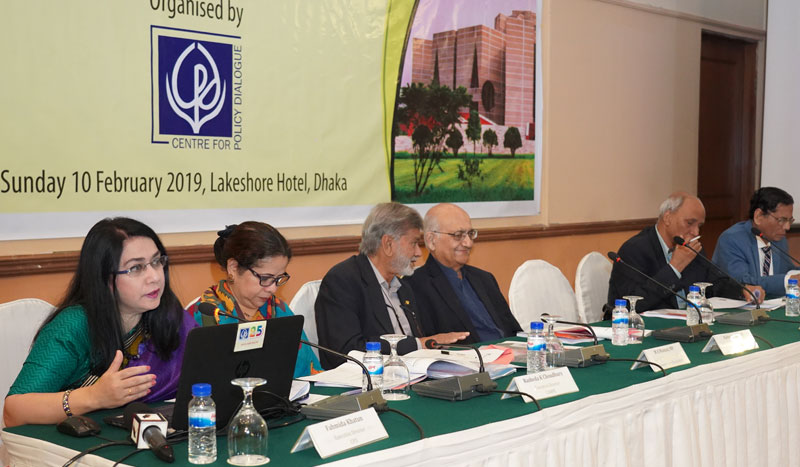
In her presentation, Dr Khatun highlighted the current unemployment and inequality situation. She suggested that allocation for education should at least be 20% of the national budget, which is currently 16.4%. Dr Khatun mentioned that at present over two-thirds of total health expenditure is financed by out-of-pocket spending. Thus, more investment on education and healthcare is required to reduce inequality in the society. She also urged upon separating allocation for pensions of government officials from budget for social protection.
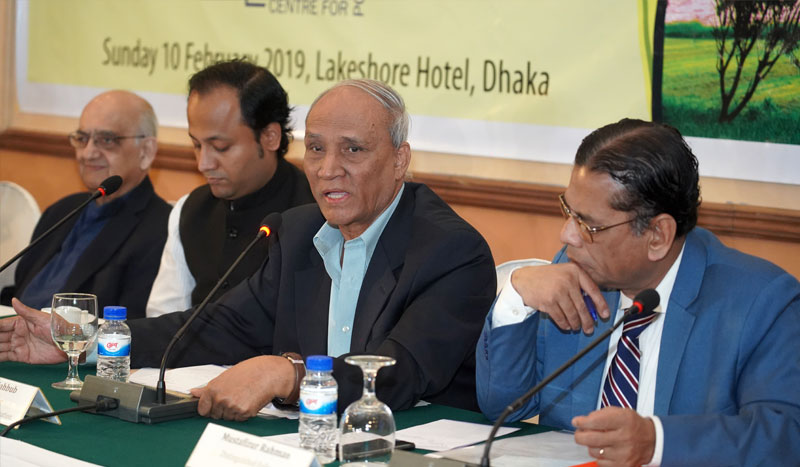
Referring to poor healthcare facilities at the grassroots level, the Special Commentator at the dialogue, Professor Dr Rashid-E-Mahbub, Former President, Bangladesh Medical Association (BMA), mentioned that the budget for healthcare is same for all Upazilas, irrespective of the size of population. He also observed that there is lack of coordination among institutions in the health sector.
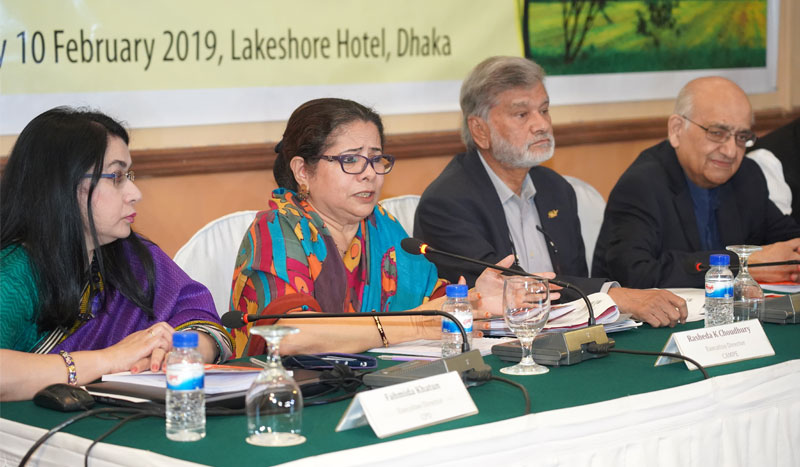
Ms Rasheda K Choudhury, Executive Director, CAMPE, the other Special Commentator, pointed out that the role of local government and community participation needs to increase in the decision making process for education. She also highlighted the currently prevailing mismatch between required skills and education due to which students find it difficult to get jobs.
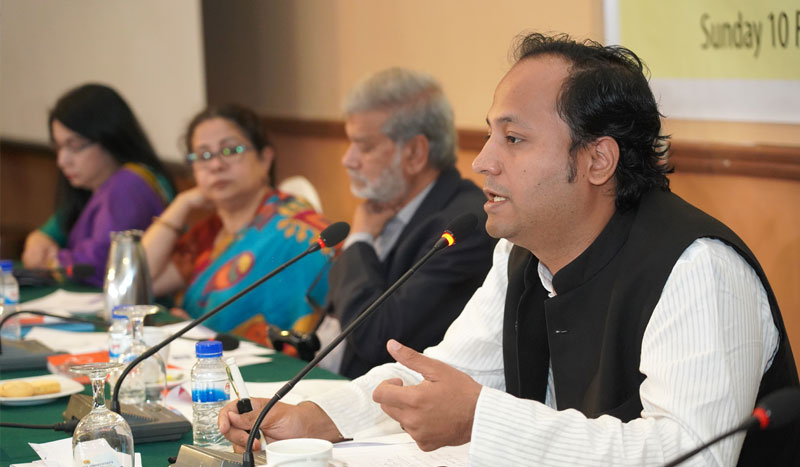
In response to comments regarding centralised decision making in both education and health sectors, the Special Guest, Mr Mohibul Hassan Chowdhury, MP, Hon’ble Deputy Minister, Ministry of Education, opined that decentralisation will not necessarily always ensure good governance. He appreciated some of the recommendations of the CPD report and was open to consider those during policy discussions in the coming days.
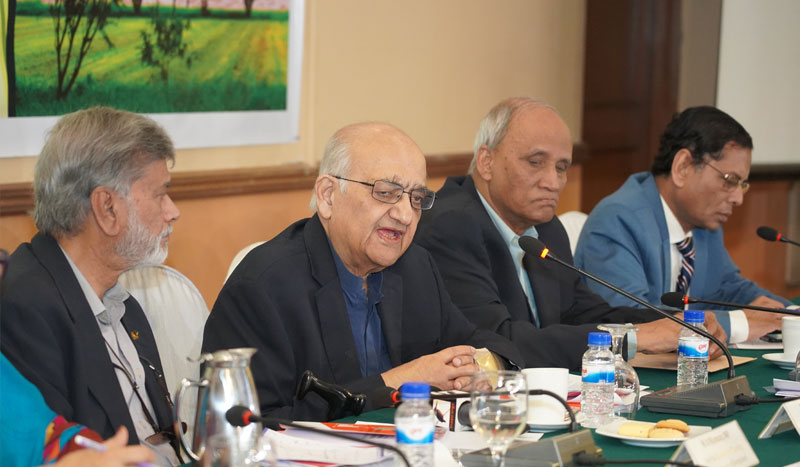
Professor Rehman Sobhan observed that in recent times, people spend more in education and healthcare provided by the private sector. He emphasised on quality improvement in case of public education and healthcare.
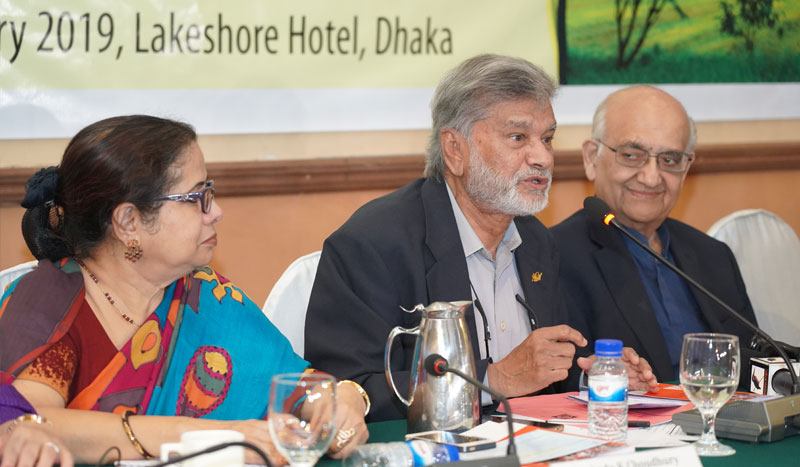
The Chief Guest, Mr M A Mannan, MP, Hon’ble Minister for Planning, said that growth addresses mainly the issue of poverty. Thus, with higher growth and reduced poverty, people are in a position to spend more to get facilities from the private sector. He also mentioned that the government has been implementing various programmes to create jobs and reduce inequality.
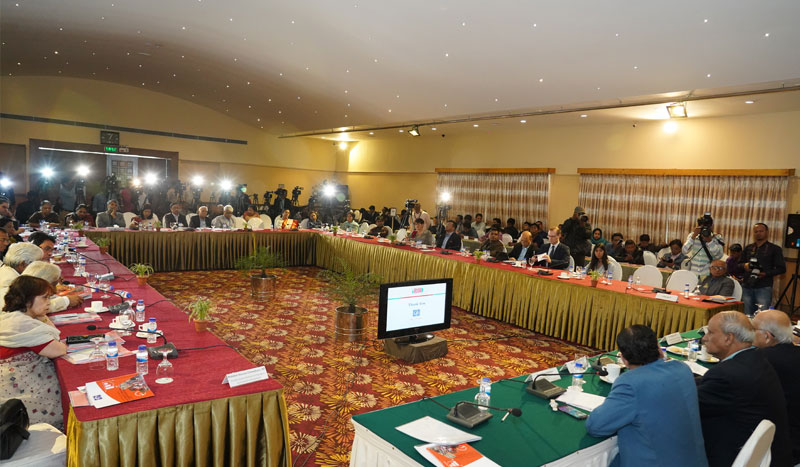
Experts in education, health and social sectors spoke at the event. The audience included government officials, development partners, academicians, diplomats and journalists from the digital and print media, among others. A book titled, “State of the Bangladesh Economy and National Elections 2018: Priorities for Electoral Debates”, published by CPD was launched at the event.

